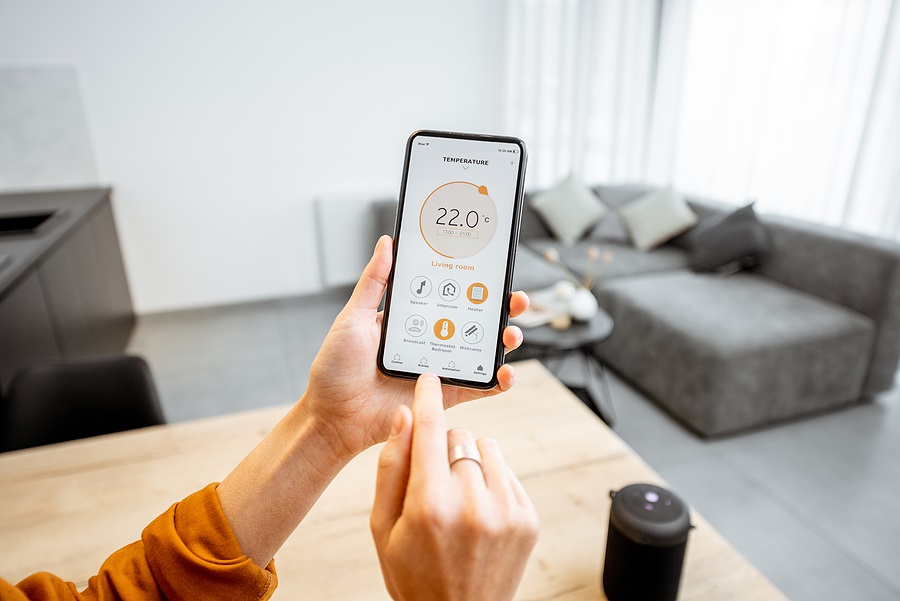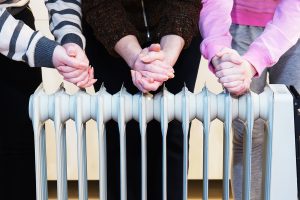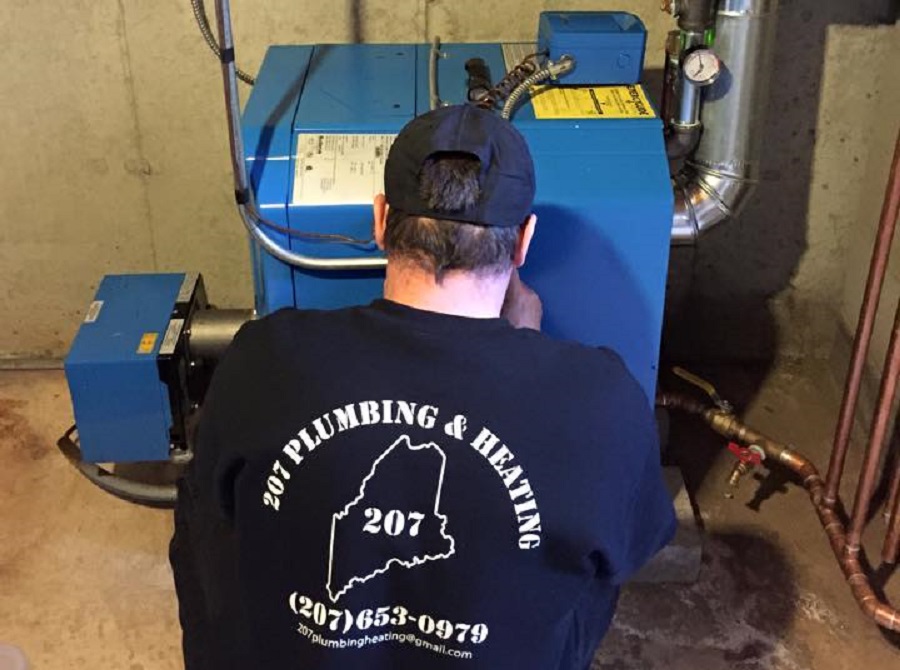We all want a heating system that leaves our home feeling just right. Too hot and you’re cracking the windows in winter. Too cold and you’re adding layers and covering up with blankets. We get a lot of questions about heating systems and why they do what they do. How can you make your system more energy efficient? How often should you do maintenance? What about air filtration for better indoor air quality?
Here we address some of the most common heating system questions we get:

An energy-efficient heating system can save some big bucks. If your system was installed in 2006 or earlier, you could see as much as 54% in energy savings by upgrading to one of today’s units. We know new systems are a big investment, but with that kind of energy savings, you can see a return pretty quickly!
Look for a new unit with the highest energy rating you can afford. Installing a system that is too big or too small can have a big impact on efficiency as well. Have a professional plan your new system out with you, as your home’s size, condition, and other factors play into designing the right system for your home.
The U.S. government requires an efficiency rating of all heating equipment, and for most household appliances. An energy rating is simply a way of measuring and showing how energy efficient an appliance is, according to how much energy it consumes. The rating reflects the percentage of energy used efficiently. The higher the rating, the more energy efficient the unit is and the lower the fuel bills will be.
Gas furnaces are rated according to their annual fuel utilization efficiency, or AFUE. The AFUE measures the furnace’s efficiency in converting fuel to energy. The higher the AFUE rating is, the more efficient the unit. Natural draft furnaces, or boilers, typically have an efficiency rating of about 80 percent. A furnace that has an 80 percent AFUE rating can turn 80 percent of the energy it consumes into heat. The other 20 percent is used during the heating process. Some manufacturers have developed more efficient furnaces to operate at up to a 98-percent efficiency rating.
A techie’s dream! Designed to make life easier, a smart thermostat allows you to control and schedule your heating system settings from anywhere using your smartphone, tablet or computer. It also allows you to monitor the health of your system, and will alert you before potential problems arise. Features of smart thermostats include zone control capabilities, built-in humidity sensors, maintenance and filter service reminders, and weather forecasts, alerts, and radar.
We typically suggest setting it to auto. That way, the fan operates only when the temperature requires it. This is the most used and the most efficient setting. There are advantages to using the “on” setting on your thermostat. When it is set to “on”, air is constantly circulated through the unit’s air filter. This constantly circulating air results in more even temperature throughout the house.
You want to work with a licensed and insured heating contractor if you are considering replacing your old equipment or the adding any new equipment to your heating system. Many factors are taken into consideration to properly size the equipment for your home. These factors include details such as square footage of your house, the climate, the number and type of windows installed, insulation, and even the number of people living in the house. An experienced heating contractor will calculate what size and type of heating system is best for your complete comfort.

Several factors contribute to experiencing hot and cold spots in your home. How old your house is and the way it is built are major factors. How much sun and/or shade different areas of your house get play a role in solar gain or lack of heat. Rooms closest to appliances tend to be warmer than a remote bedroom on the north corner of the house. Drafts, air leaks, old uninsulated windows, and poor insulation are common causes of cold spots.
The way your heat exchangers (radiators, baseboards) or duct work is laid out has a tremendous impact on how even and comfortable individual rooms are in a building. If your system is properly designed and installed, air is spread equally to all parts of your home so that walking from room to room doesn’t require a change of clothing. Improperly designed or installed, and you’ll find that some rooms get much less heat than others.
The easiest way to address hot and cold spots in your home is with proper zoning of your home areas. With a zoning system, you can individually control the temperature in “zones” of your home individually, rather than setting only one temperature for your entire house. Zones increase comfort, and can save money on your heating bills.
Pretty much any homeowner can replace the filters in their furnace or boiler themselves. This should be done every 1-2 months during the operating season. A dirty filter can restrict airflow which impedes heat consistency, and it also will increase energy use in your home.
Keeping the area around any heating units clean is also a valuable effort homeowners can make. Have at least 2 to 3 feet of space around your main unit, and 5 feet of clearance above it. It’s important to leave adequate space for airflow, and to prevent any fire hazards. Ductwork, baseboards, and radiators should be cleaned regularly to eliminate any dust buildup that not only restricts heating efficiency, but negatively impacts your indoor air quality.
The average heating system lasts about 15 years. After that, not only are they grossly inefficient, but they are probably not worth putting a lot of money into for repairs. Have a licensed heating professional evaluate your current system. They will look for various issues with components, and be able to tell you if there is a simple issue that is resolvable, or if you need to be planning a replacement.
Get your system professionally serviced every year. Having it checked when heating season ends in the spring/summer helps you avoid last minute emergency service calls, and you can get ahead of any costly repairs when it’s peak season. For the cost of usually under $250, your unit will be thoroughly inspected for safety, cleaned, have new filters, and be ready to work hard (but efficiently!) for you all winter.
Whether you have a furnace, boiler or heat pump, and use oil, propane or natural gas – we can inspect and repair your system! Call us at 207-653-0979 to schedule your routine inspection and cleaning service, or to have a FREE consultation about your home’s heating needs.

We are committed to the safety and well-being of our customers and our technicians. We are taking all necessary precautions and safety measures to prevent the spread of COVID-19. Read our full Coronavirus (COVID-19) Update.